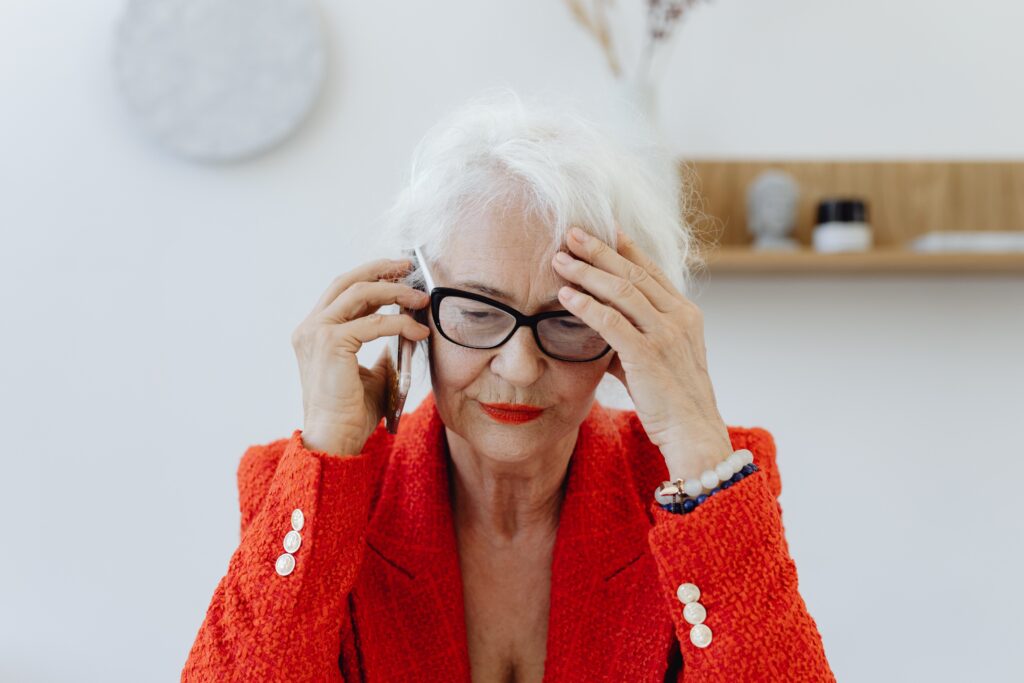Your retirement may be your last political act
The post-Stonewall generation is aging: What does that mean for their and our retirement?
The stereotype of LGBT people is one of affluence and disposable income. But outside the rarified world of celebrities and millionaires, studies during and post-pandemic have shown that is largely a media myth. LGBT people are actually a third to half as likely as their cis-het peers to accrue wealth. Most LGBT people are struggling financially, coping with under-employment and even lack of housing and food insecurity. For many if not most LGBT elders, the life-long fight against discrimination has meant lack of access to wealth in all its forms. Queer Forty spoke with LGBT elders and experts at SAGE (Services & Advocacy for GLBT Elders) about growing older and what that means for those outside the Palm Springs retirement villas and the pricey gayborhoods.

The last of the Baby Boomer generation, those born in the post-World War II years between 1946 and 1964, will turn 65 in 2029, at which point a fifth of the U.S. population, including the LGBTQ community, will be elders. Many older LGBTQ people feel the community hasn’t kept up with their needs. SAGE estimates there will be seven million LGBTQ elders by 2030. Gen Xers are close behind: the first generation of Gen Xers is already 59.
The first generation of out LGBT people post-Stonewall is aging. Yet the LGBT+ community has remained youth-focused and as a community has not addressed its elders well.
SAGE states in its mission: “We’re still in the early stages of grasping what it really means to be LGBT and older. Now, a confluence of a cultural and legal shift—along with sheer population size–is changing how we approach the needs of the LGBT senior community.”
And LGBT elders need their needs addressed, now. Unlike their cis-het peers, LGBT people have had limited access to wealth and financial security and the means through which we accrue it: through consistent secure employment, marriage and generational wealth through families of origin. As a pre-pandemic study in 2019 by the Williams Institute at the UCLA School of Law showed, differences between sexual orientation and gender identity groups indicated poverty was much more common among LGBT people and that for trans people and lesbian and bisexual women, it was even higher than for gay men.
Nearly a quarter of LGBT people are living in poverty versus 16% of cisgender straight people. A full 15% of transgender workers have incomes of less than $10,000 per year while among the population as a whole, the figure is just 4%. All these numbers get exponentially higher as people age. Economic disparities for LGBT people are extreme all along the class gradient. But as people cross the 55+ mark, those differences widen each year. At 80, more than 60% of women are living in poverty.
A report from the Movement Advancement Project (MAP), “Paying an Unfair Price: The Financial Penalty for Being LGBT in America,” documents how “inequitable laws harm the economic well-being of LGBT people in three key ways: by enabling legal discrimination in jobs, housing, credit and other areas; by failing to recognize LGBT families, both in general and across a range of programs and laws designed to help American families; and by creating barriers to safe and affordable education for LGBT students and the children of LGBT parents.”
“Unfair laws deliver a one-two punch. They both drive poverty within the LGBT community and then hit people when they are down,” said Ineke Mushovic, Executive Director of MAP. “While families with means might be able to withstand the costs of extra taxation or the unfair denial of Social Security benefits, for an already-struggling family these financial penalties can mean the difference between getting by and getting evicted. Anti-LGBT laws do the most harm to the most vulnerable in the LGBT community, including those who are barely making ends meet, families with children, older adults, and people of color.”
As these landmark studies show, bars to wealth for LGBT people and their families are generational and endemic to every strata of society. As a consequence, LGBT elders are far less likely to have that disposable income or even savings. Losing a spouse or being unattached increases the likelihood of financial instability.
Dr. David Vincent is the Chief Program Officer with SAGE (Services & Advocacy for GLBT Elders), where he provides vision, oversight and leadership to all direct service programs at SAGE, including care management, housing, behavioral health, and SAGE Center programming at the agency. A key focus for Vincent is to help LGBT elders gain access to programs and benefits that will help them financially. But he also wants to highlight these issues for everyone so that the larger community can both help LGBT elders and act as a preventative for younger LGBT people so that they can begin to look at their own “future financial wellness.”
“A lot of our folks have experienced a lifetime of discrimination from accessing financial resources, employment, and housing which impacts their current financial status. Even with fewer opportunities to build wealth throughout their lives, SAGE’s programs, like SAGECents, aim to change the way they approach financial wellness.”
Dr. david vincent, sage
One of the most critical issues for LGBT elders, Vincent emphasized, is to look at the way the larger culture has prevented them from accruing wealth and financial security. “I think it’s important for LGBTQ older adults, when they are looking at their financial health, that they look at their history of discrimination and how homophobia and transphobia have impacted them,” Vincent said. “The inability to get married, to have a spouse’s pension, to build financial wealth and health has been denied to so many. LGBTQ people don’t have the income or savings of their peers, but it’s not their fault.”
He detailed how “histories of discrimination” are so endemic to the lives of LGBTQ people that they don’t factor it into how they might be turning 50, 60 or 70 and have no savings at all.
Vincent said of these histories of discrimination that most LGBTQ people carry, “We get so used it and we try to move on from it. But at the end of the day, the U.S. government, landlords, employers, schools, families–all have a horrible track record of discrimination for LGBTQ people,” adding that discrimination puts LGBT+ elders at greater risk for chronic health problems, social isolation, poverty and even premature mortality.
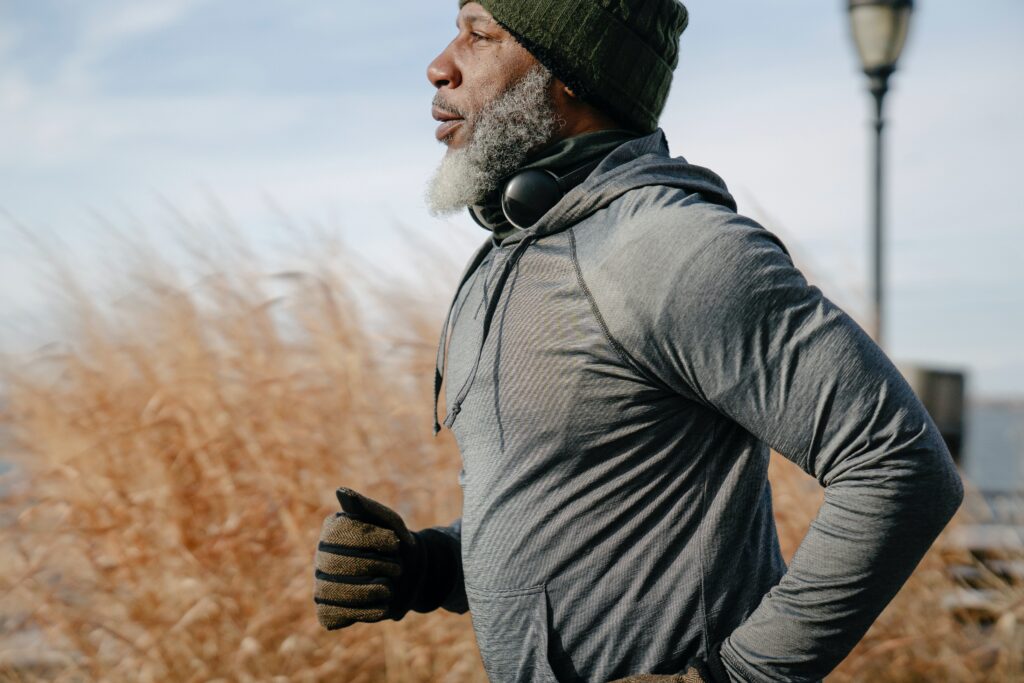
According to SAGE, one-third of LGBT+ older adults live at or below 200% of the federal poverty level. LGBT+ elders are poorer and have fewer financial resources than their non-LGBT+ counterparts. In addition, trans people in the U.S. are more than twice as likely to live in poverty as non-trans people, and trans people of color are more than three times as likely to live in poverty. There are almost no data on trans elders.
In addition, because LGBT+ people are more likely to be subject to employment discrimination, their earnings and Social Security payments are lower. All of which means it is harder for LGBT+ elders to find affordable housing as they age.
SAGE notes that research shows that LGBTQ people under 40 are less likely to be married and less likely to intend to have children. Also, that LGBTQ elders are more likely to be estranged from their biological families and are twice as likely to live alone. In addition, 51% of older LGBTQ individuals are very or extremely concerned about having enough money to live on, as compared to 36% of older non-LGBTQ people.
In addition, because LGBT+ people are more likely to be subject to employment discrimination, their earnings and Social Security payments are lower. All of which means it is harder for LGBT+ elders to find affordable housing as they age.
As an interracial lesbian couple living in Northwest Philadelphia well outside the city’s pricey gayborhood, Aviva Rosen, 69, and her partner Reece Davis, 75, have experienced discrimination on myriad levels throughout their lives and careers. While both women describe themselves as “educated and solidly lower middle class financially,” as they are aging, their financial reality has changed.
Rosen said she is feeling the stress of aging as she and Davis discuss their health, finances and future.
For Rosen the impending milestone of turning 70 has been emotional to contemplate. “That 70 milestone is just months away, and leaving my 60s and heading into my 70s feels like a real sea-change,” Rosen said. “I’m not sure I’m ready. I’m not ready to retire and I’m not ready to not-retire. Money feels like it could be an issue for us. So does health. ”
Rosen and Davis have been partnered for nearly 20 years. Davis, who retired last year from her job in health administration, says, “We are starting to have real worries about the stability of our future and what services there are for gay people like us who don’t have family to care for us as we age.”
Both women told PGN that their biggest fears were of being separated and forced to leave their small row home on the tree-lined street in a quiet, racially mixed neighborhood. Their house is the home where Davis has lived for over 30 years and where they hope to “age in place” with their dogs.
“Our health is manageable now,” said Rosen, a social worker. “But we are well aware that we are one fall or one bout of pneumonia away from having to consider moving to assisted living, which we know is not queer-friendly. We just don’t want that. We want to stay here, together, for the rest of our lives.”
According to the National Council on Aging (NCOA), LGBT+ elders are at higher risk for cancer, mental illness and cardiovascular disease. LGBT+ older adults have higher rates of chronic conditions and other health-related problems, as they have often faced discrimination in health care. NCOA explains that for LGBT+ elders, barriers to health care, lack of health insurance and fear of discrimination by doctors “threatens the healthy aging of a generation.”
Vincent said that we need more access points—especially housing in the neighborhoods, as opposed to the gayborhoods because that is where people are living and most need affordable housing. Concerns like those voiced by Rosen and Davis are increasingly common. Statistically, older Americans want to “age in place” and remain in their homes. Myriad in-home healthcare services have sprung up in recent years to address those needs and wishes. Yet as the New York Times reported in December, so-called “kinless” seniors are a growing demographic, complicating those desires. The Times reported “An estimated 6.6 percent of American adults aged 55 and older have no living spouse or biological children, according to a study published in 2017 in The Journals of Gerontology: Series B.”
Not factored into any of this is how much discrimination LGBT seniors might face in housing or in home care services.
Safe, affordable housing remains a key focus for LGBTQ elders. According to an Equal Rights Center report on barriers to senior housing for same-sex couples, 48% of older same-sex couples applying for elder housing were subjected to discrimination.
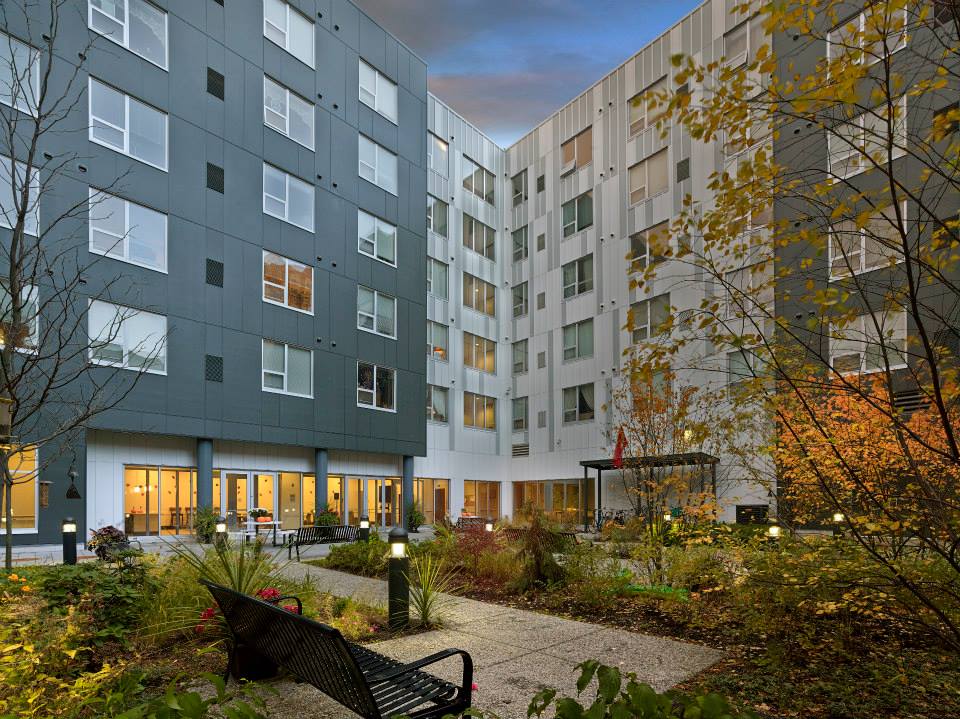
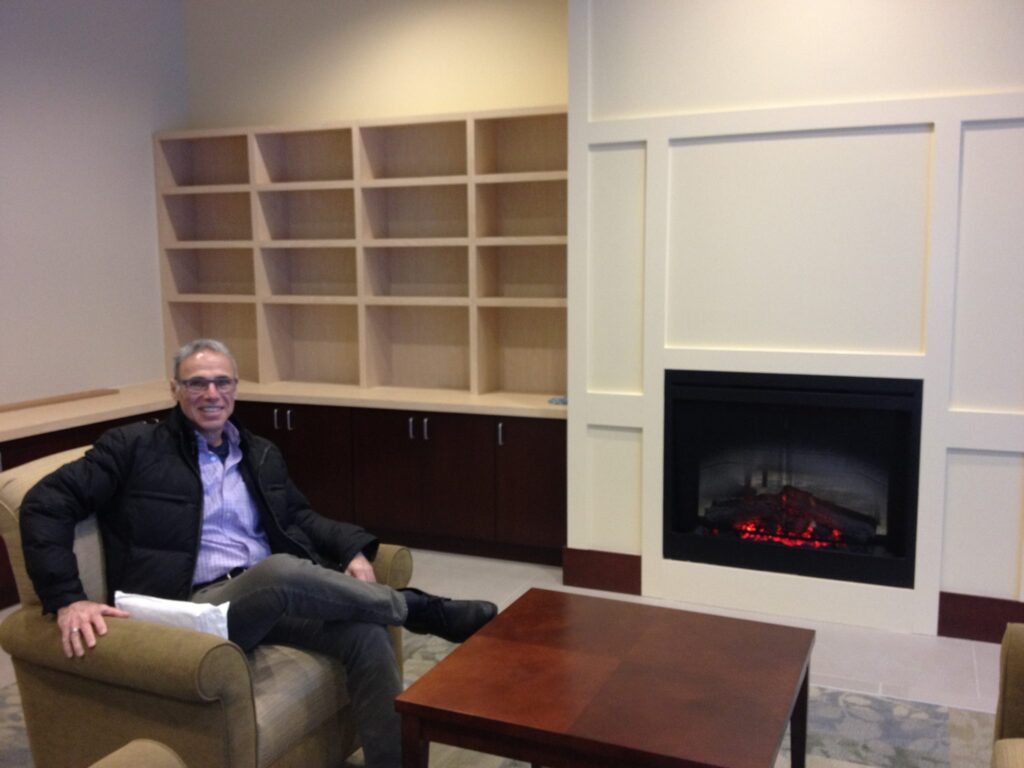
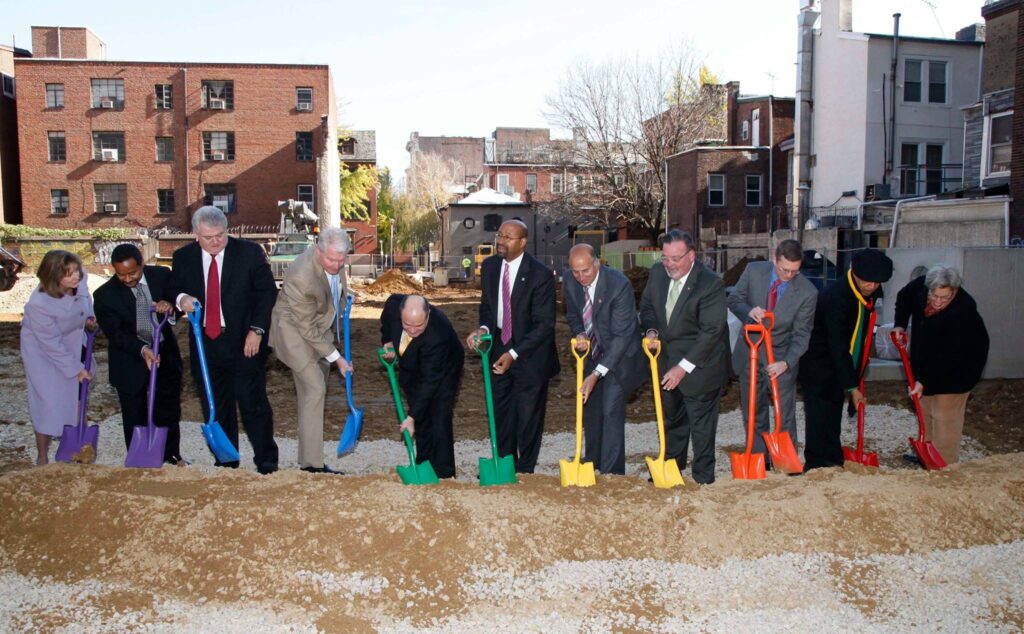
Vincent stressed the importance of helping LGBTQ elders with navigating housing and finances. He emphasized the importance of having accessible and affordable housing for LGBTQ elders “outside the gayborhood, because that’s where most LGBTQ elders are living. We really need to address this factor of aging—that so many of our elders are financially unable to find affordable housing and that puts them at real risk of homelessness.”
For Mary Groce, 73 and Suz Atlas, 79, the John C. Anderson Apartments (JCAA) in Center City Philadelphia in the heart of the gayborhood has been a life-saver and a lifeline to community. Atlas says that she and Groce were eager to move into the complex and be among other “like-minded” people. “We really couldn’t get here fast enough,” she said. The couple have been living at JCAA since 2017.
JCAA opened in 2014 and is named for the late Black gay City Council member John C. Anderson. A 56-unit, six-story complex with a garden, has been a model for low-income housing for LGBTQ elders in the U.S. SAGE highlights it as part of their focus on their National LGBTQ Housing Initiative.
Groce, a writer, has been putting out a monthly newsletter from JCAA for years with contributions from a myriad of JCAA’s tenants. She noted that the “togetherness and community” of the complex has been a lifeline for many, particularly throughout the pandemic. Talking about JCAA both women are exuberant. “It’s community. Friends. Community is the main thing—it’s a connection. We need that as we age,” Groce said.
Atlas noted, “We’re also set in our ways. We like being around like-minded people,” by which she means other LGBTQ elders, many of whom have the same activist histories as she and Groce have.
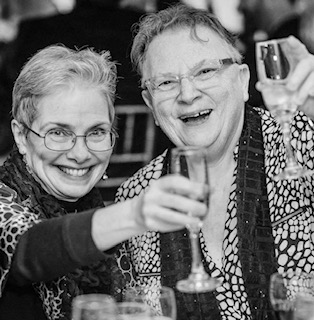

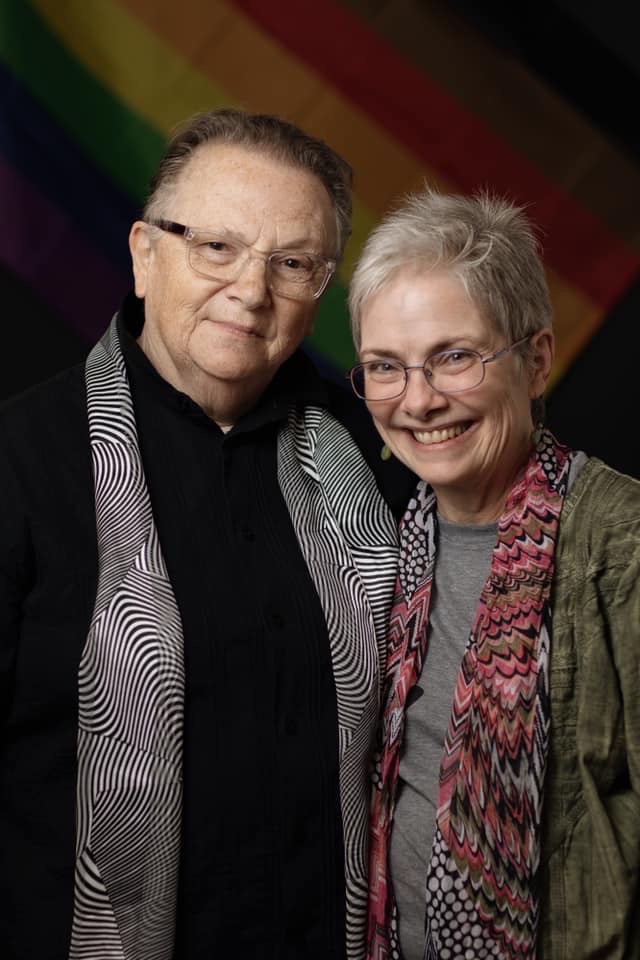
As Groce says, “The pandemic showed us all that we have never needed community more.”
According to SAGE, more than 50 percent of individuals in a national health study on LGBT+ elders had been diagnosed with depression by a health care provider, and 39 percent reported having had seriously considered suicide. All of these statistics point to the need for the kind of open community that JCAA has provided in Philadelphia.
The New York-based SAGE has developed subsidized rental buildings for LGBT+ elders in Brooklyn and the Bronx, which Vincent said was essential community housing. “We have to bring housing to where people are,” he said.
Vincent said that SAGE tries to introduce LGBTQ elders who “have a history of discrimination and abuse by social service systems” to connect with those systems for benefits and services. “They are less apt to reach out to SNAP and other programs,” he said.
He said: “This is where LGBTQ agencies can help connect them. We designed SAGECents specifically to address these histories. We took out language like ‘how are you going to manage your pension, how are you going to deal with your stocks.’”
The reality, said Vincent, is that for many LGBTQ elders the question is ‘Do I eat or take my medications?’” Crucial, said Vincent, is to “create platforms and systems for what people need. We have to educate people and train people to work with LGBTQ adults and to do that work with kindness and respect, to help engage folks in those services they most need.”
The average person using SAGECents will save $590. “We are finally able to connect people to SNAP or rental programs, to tell them about new connectivity programs through federal government programs.” Vincent said.
“Coming out today isn’t easy due to various challenges and discrimination,” adds Vincent. “But if we could support elders who paved the path for so many by improving their overall financial wellness, then it can become easier for them to live their fullest lives in strength and resilience.”
Sign up online for SAGECents: https://www.sageusa.org/what-we-do/sagecents/

